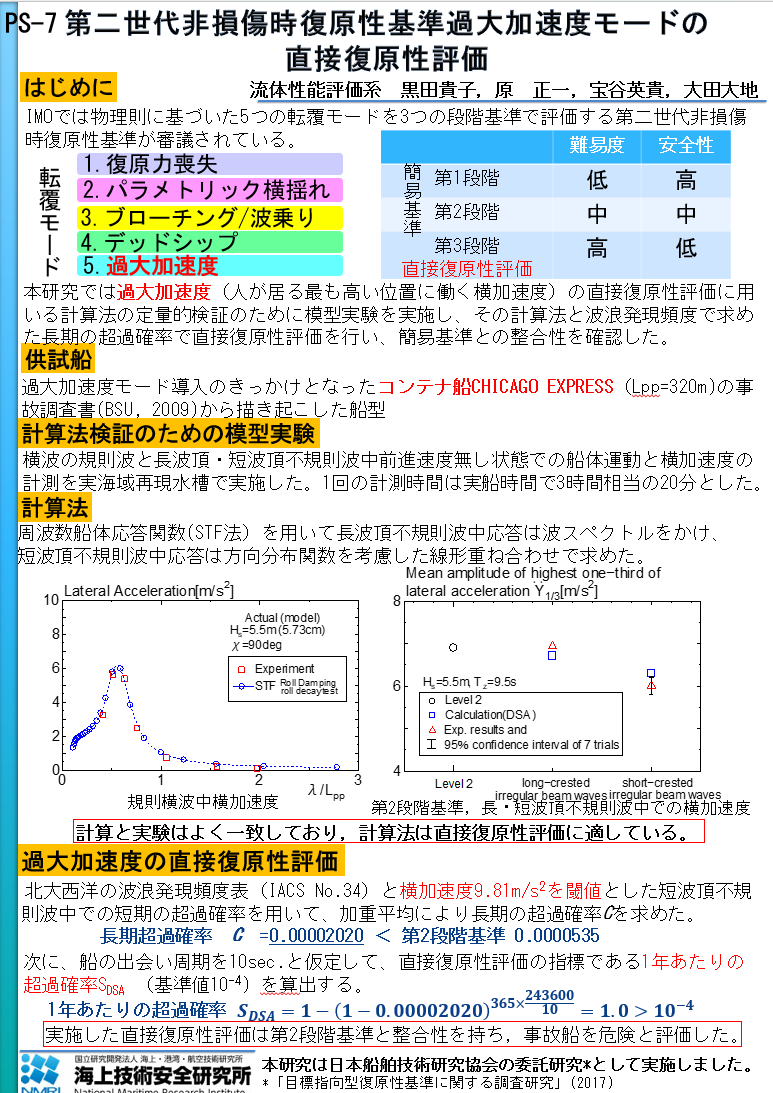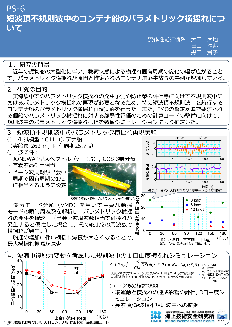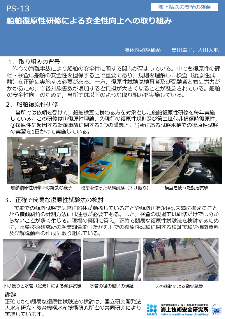Seakeeping Performance Research Group
SEAKEEPING PERFORMANCE
This group focuses on research on ship motion in waves, analyzing hazardous events leading to ship capsizing and sinking, estimating ship motion in waves, estimating flooding and motion in the event of damage, and research on towing vessels. We conduct various tests concerning these studies, ranging from towing and free-running model tests in the Actual Sea Model Basin to sea trials on actual ships. Furthermore, we are also developing numerical simulation methods that hazardous events occurring to ships in waves, aiming to prevent marine accidents from both experimental and numerical perspectives.
Members
(◎: Head of the Group)
Research Overview
Hazardous events on vessels caused by stability
The International Maritime Organization (IMO) has approved the 2020 Interim Guidelines on the Second Generation Intact Stability Criteria to assess five dynamic stability failure modes in waves: dead ship condition, excessive acceleration, pure loss of stability, parametric rolling, and surf-riding/broaching. Our group has conducted research on excessive acceleration failure modes and contributed to the development of the guidelines.
We are currently developing simulation codes to calculate non-linear ship motions in the time domain, taking into account the variation of stability in irregular waves, and establishing tank test techniques to reproduce these failure modes, in order to develop simulation tools validated by tank tests.
We are also conducting research to improve the accuracy of wave field reproduction in the test basins as one of the tank-testing techniques. Generally, waves propagate in a cylindrical direction from their source. This property makes it difficult to generate waves with spatially uniform wave height even with regular waves which have uniform amplitude, wavelength, and direction. Therefore, we are developing a technique to generate regular waves with spatially uniform wave heights by optimizing the movement amplitude of wave-makers.
In addition, we provide stability training that includes explanations of stability regulations, practical training in stability testing using model vessels, and explanations of case studies analyzing capsizing accidents that have occurred due to stability issues.
Wave-Induced Steady Forces and moment on a ship
Ships navigating in waves create new unsteady waves, because they periodically oscillate, and reflecting and diffracting incident waves. As a result, the unsteady wave forces on the ship exhibits a nonlinear natures, which can generate a time-averaged steady components. These steady components, although a higher-order forces, induces a time-averaged decrease in the ship's speed, a ship's lateral drift, and an increase in the rudder angle required to maintain the ship's course. Moreover, these steady components also affects the ship's position, heading, etc. as the integral values. Therefore, when assessing a ship's propulsion and maneuvering performance in actual seas, it is essential to consider the wave-induced steady forces and moment in the ship's surge, way, and yaw directions.
This group is developing a computational method to theoretically and practically estimate such wave-induced steady horizontal forces and yaw moment, even when the ship has forward and lateral speeds, and turning angular velocity. Furthermore, this group is developing a numerical simulation method for predicting 6-degree-of-freedom motions of a maneuvering ship in waves, considering the effects of the wave-induced steady forces.
Ship towing
When planning to tow a disabled vessel, it is essential to consider several factors. These include the sea conditions at the site, the forces acting on the towed vessel, the towing capacity of the towing vessel, and the strength of the towing equipment and materials. Attention to these details is crucial for a safe and effective towing operation. The Optimum Towing Support System (OTS), developed based on our previous research findings, is a program for calculating the towing state of vessels under waves, wind, and currents conditions. The program calculates the towing conditions by systematically changing the speed, towing direction, and towline length of the towing ship when towing a disabled vessel under given sea conditions and can examine the optimal towing conditions. Research is being conducted to enhance system accuracy for actual towing conditions.
Research Subjects
Priority and Fundamental Research
- 1)Research on Technological Development for Reproducing Hazardous Events on Ships Caused by dynamic stability in Waves and Criteria (Priority Research 2, Sub-item 3, 2023-2029)
- 2)Study on a Mathematical Model of Maneuvering Motion for Reproduction of Maneuvering Motion in Port (Priority Research 2, Sub-item 1, 2023-2029)
- 3)Research on Advanced Ship-handling Automation and Support, Study on Practical Computational Methods for Ship Maneuvering Motion under Disturbances (Priority Research 4, Sub-item 3, 2023-2029)
- 4)Research on Establishing Methods for Optimization and Advancement of Marine Operation Technology (Priority Research 7, Sub-item 1, 2023-2029)
Grants-in-Aid for Scientific Research
- 1)Numerical Simulations of Ship Maneuvering Motion in Adverse Weather Considering Slowly-varying Second Order Wave Loads on a Ship Obliquely Advancing in Irregular Waves (Grants-in-Aid for Scientific Research (C), 2024-2026)
- 2)Effects of Wave Group Evolution and Wave Directionality on Extreme Ship Response in Waves (Co-Investigator) (Grants-in-Aid for Scientific Research (B), 2024-2026)





